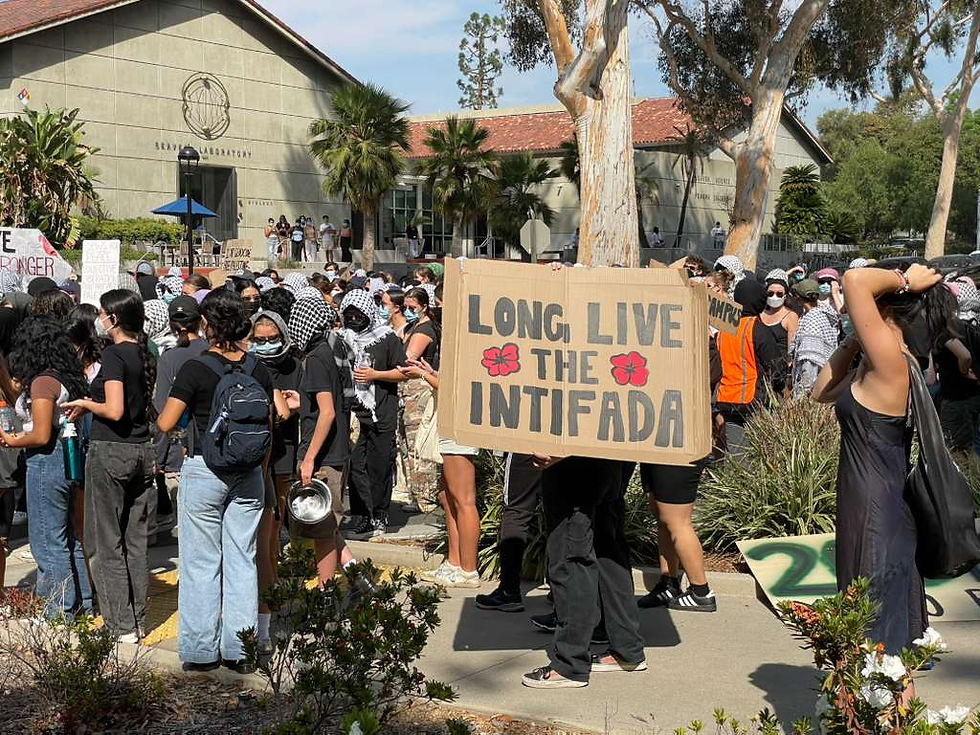Students Demand Extrajudicial Bias Reporting, Statements In Support Of #BLM, In New Petition
- The Claremont Independent

- Jun 29, 2020
- 3 min read
In a recent petition released by the 7Cs (Claremont Colleges) For Black Lives Matter Coalition, student activists made a series of demands directed at the administrations of the Claremont Colleges. Citing “recent acts of anti-Black violence and the national uprisings in support of the Black Lives Matter movement,” the students called on their respective colleges to “enact systemic change within [their] institution[s] and to use [their] platform[s] to advance racial justice.”
Notably, the petition demands for a bias and microaggression reporting system outside of the normal incident reporting system at the colleges.
The petition claims that the colleges “have not done enough”; last week, Claremont McKenna College and Harvey Mudd College, two members of the Claremont Consortium, announced various anti-racism initiatives. The list of the student activists’ demands must, per the petition, “be the first of many, ongoing efforts that demonstrate a genuine commitment to standing in solidarity with and fighting for justice for the Black community.”
The demands are divided into five categories: Support, Educate, Invest, Acknowledge, and Engage. Demands in the first category include a detailed statement by each college expressing explicit support for the Black Lives Matter movement and detailing how the administration will enact systemic change to “combat racism and anti-Blackness,” supporting student protests “verbally, materially, and financially,” and establishing a system for reporting bias incidents, such as microaggressions, outside the purview of campus security.
The Educate section requires that all professors be trained to handle “emotionally and socially charged conversations in the classroom and facilitate conversations about race that don’t silence Black students.” A required social justice course for all first-year students must also be instituted to discuss racism and anti-racism “with a focus on Black and Indigenous histories, communities, and people.” Anti-racist work will be an ongoing expectation for all students. The petition does not include a definition of “anti-racist.”
One of the notable demands in the Invest section includes publicizing “statistics about the number of Black employees and professors, including at the executive level, and discuss[ing] racial pay gaps.” It also includes a demand for a plan intended to “[h]ire and support Black university leadership. Hire and support Black faculty, staff, and advisors. Promote Black employees to positions of institutional power and increase their pay.” As of this article’s writing, the Presidents of Pomona and Pitzer Colleges, as well as the Pomona Dean of Students and the Pomona-Pitzer Athletic Director, are Black. Other demands in this section include paying students, faculty, and staff for “anti-racist and activist work on-campus,” compensating Black employees “financially and with tenure considerations” for “mentoring, counseling, and engaging with students…as a result of their social identities.”
The Acknowledge part of the list includes calls for an apology from Campus Safety regarding an email in May that referred to protesters as “looter and rioters,” banning inquiries about applicants’ criminal histories during the college application process, and publicly disclosing “all financial relationships between the Claremont Colleges, its administrations, and its board of trustee members who are funding or profiting from policing (e.g. the Claremont Police Department), police militarization, mass surveillance, and the prison/detention industrial complex.” The final demand includes a call for the colleges to condemn “the people (such as Claremont Graduate University’s former student Senator Tom Cotton) and systems” that reinforce actions or behaviors of racial injustice in the eyes of the student activists.
The student demands in the final section of the list include connecting with anti-racist advocacy groups and organizations on-campus, listening to and acting on the suggestions for change put forward by Black members of the university community, mandating that “non-Black staff, faculty, and administration take responsibility to proactively engage in anti-racist initiatives backed by self and institutionally led education to shift labor off of Black individuals.”
#claremont #harveymuddcollege #pomonacollege #TopColleges #FreeSpeech #Pitzer #AcademicFreedom #College #ClaremontIndependent #SocialJustice #diversity #AcademicDiversity #ClaremontMcKennaCollege #TheClaremontColleges #ScrippsCollege #PoliticalCorrectness #PitzerCollege #SafeSpaces #ClaremontColleges
.png)



Comments